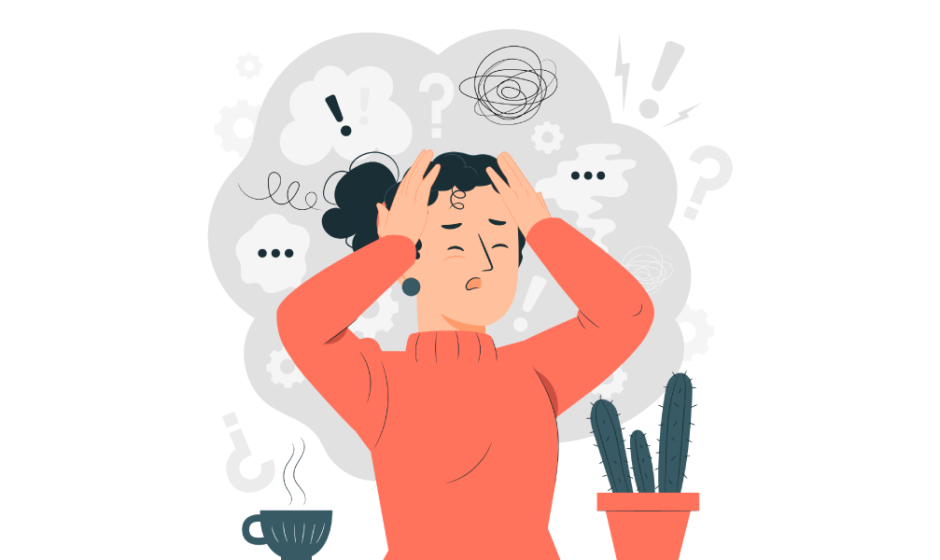In today’s fast-paced world, sleep has become a luxury rather than a necessity for many. Chronic insomnia—defined as difficulty falling asleep, staying asleep, or waking up too early and being unable to go back to sleep—affects millions of people worldwide. While the impact of sleep deprivation is often dismissed as a mere inconvenience, research has shown that chronic insomnia does more than just leave you feeling tired. It can alter the brain in profound ways, potentially leading to long-term mental and physical health issues. The good news is that with the right interventions, these changes are reversible, and healing is possible.
The Neurological Impact of Insomnia
To understand how insomnia rewires the brain, it’s essential to look at the neurological mechanisms involved in sleep and wakefulness. Sleep isn’t just a passive state; it’s an active process during which the brain consolidates memories, detoxifies, and repairs itself. In healthy individuals, sleep follows a cycle of non-REM (Rapid Eye Movement) and REM stages, each with distinct roles in maintaining cognitive and emotional health. However, when sleep is disrupted—either due to difficulty falling asleep, waking up in the middle of the night, or waking too early—the brain suffers both immediately and over time.
Chronic insomnia impacts the brain in several key ways:
Increased Stress Response
The brain’s stress-response system is deeply intertwined with sleep regulation. The hypothalamic-pituitary-adrenal (HPA) axis is responsible for managing the body’s reaction to stress. When sleep is disrupted, this axis becomes overactive, leading to an increase in the production of cortisol, the primary stress hormone. Elevated cortisol levels not only impair the ability to sleep but also contribute to anxiety, depression, and cognitive difficulties. Over time, the constant activation of the HPA axis can result in a heightened state of arousal, making it even harder to relax and fall asleep.
Impaired Cognitive Functioning
Chronic insomnia can negatively affect various cognitive processes, including attention, memory, and executive function (the mental processes required for planning, decision-making, and problem-solving). Lack of sleep impairs the brain’s ability to encode new information and consolidate memories. Studies show that individuals with insomnia often experience difficulties with learning and retaining information, which can interfere with work, school, and daily activities.
Structural Changes in the Brain
Over time, chronic insomnia can lead to structural changes in the brain. One of the most concerning areas affected is the hippocampus, the region responsible for memory and learning. Research has shown that prolonged sleep deprivation can reduce the size of the hippocampus, leading to memory deficits. The prefrontal cortex, which is involved in decision-making and emotional regulation, also suffers. This results in a reduced ability to handle stress, regulate emotions, and make sound decisions.
Emotional and Psychological Effects
Chronic insomnia can increase vulnerability to mood disorders such as depression and anxiety. Inadequate sleep affects the brain’s limbic system, which controls emotional responses. The amygdala, the brain’s emotional center, becomes more reactive, while the prefrontal cortex, which helps modulate emotional responses, becomes less active. This imbalance contributes to heightened feelings of fear, worry, and irritability. In some cases, insomnia can lead to a vicious cycle where anxiety about sleep exacerbates sleep problems, creating a loop that is difficult to break.
The Road to Healing: Rewiring the Brain
Despite the alarming impact of chronic insomnia on the brain, it’s important to recognize that the brain is adaptable. Neuroplasticity—the ability of the brain to reorganize itself by forming new neural connections—means that with the right interventions, you can heal and restore normal sleep patterns. Healing from chronic insomnia requires a multi-faceted approach, often combining behavioral therapies, lifestyle changes, and sometimes medical treatments. Below are some effective ways to address insomnia and promote brain health.
1. Cognitive Behavioral Therapy for Insomnia (CBT-I)
Cognitive Behavioral Therapy for Insomnia (CBT-I) is widely regarded as the most effective treatment for chronic insomnia. CBT-I targets the thoughts and behaviors that contribute to sleep problems. Through this therapy, individuals learn to challenge negative thoughts about sleep, address sleep-related anxiety, and establish healthier sleep habits. CBT-I typically involves:
Cognitive restructuring:
Changing the way you think about sleep, helping you overcome any irrational beliefs or fears.
Sleep restriction:
Limiting the time spent in bed to the actual amount of time you are sleeping, which helps consolidate sleep and improve sleep quality.
Stimulus control:
Establishing clear associations between the bed and sleep by avoiding activities like reading or watching TV in bed.
Relaxation techniques:
Learning relaxation exercises, such as progressive muscle relaxation, deep breathing, or mindfulness meditation, to calm the nervous system and prepare the body for sleep.
Studies show that CBT-I can help individuals with chronic insomnia improve both the quality and duration of their sleep, and it is particularly beneficial for addressing the psychological aspects of the condition.
2. Sleep Hygiene
While cognitive therapy targets the mental and emotional aspects of insomnia, improving sleep hygiene focuses on the physical environment and habits that promote restful sleep. The following tips can help improve your sleep hygiene:
Establish a routine:
Go to bed and wake up at the same time every day, even on weekends. This helps regulate your body’s internal clock.
Limit caffeine and alcohol:
Both substances interfere with sleep quality. Avoid caffeine in the afternoon and evening, and consume alcohol in moderation.
Create a sleep-friendly environment:
Make your bedroom dark, quiet, and cool. Consider using blackout curtains, earplugs, or a white noise machine if necessary.
Limit screen time before bed:
Exposure to the blue light emitted by phones, tablets, and computers can interfere with the production of melatonin, the hormone that signals your body it’s time to sleep. Aim to avoid screens at least an hour before bed.
3. Mindfulness and Meditation
Mindfulness and meditation are powerful tools for managing the stress and anxiety that often accompany chronic insomnia. Mindfulness involves focusing on the present moment without judgment, which can help reduce the overactive thoughts that keep you awake at night. Meditation techniques such as guided imagery, deep breathing, and body scans can relax the body and mind, making it easier to fall asleep and stay asleep.
Research shows that mindfulness-based interventions can improve both sleep quality and psychological well-being. Regular meditation practice can also decrease the body’s stress response, lower cortisol levels, and promote neuroplasticity, all of which contribute to better sleep.
4. Physical Activity
Regular exercise plays a critical role in improving sleep quality and brain health. Physical activity helps regulate the sleep-wake cycle, increases the amount of time spent in deep sleep, and reduces the time it takes to fall asleep. However, it’s important to avoid vigorous exercise too close to bedtime, as this can temporarily increase energy levels and make falling asleep more difficult.
Incorporating moderate aerobic exercises such as walking, swimming, or yoga into your daily routine can significantly improve both your sleep and your mood, as exercise increases the release of endorphins, which are natural mood boosters.
5. Medical Interventions
In some cases, medical treatments may be necessary to manage chronic insomnia, particularly if other approaches are not effective. These may include:
Prescription sleep medications:
Doctors may prescribe medications to help individuals with insomnia fall asleep or stay asleep. However, these should only be used as a short-term solution, as they can lead to dependence and do not address the underlying causes of insomnia.
Melatonin supplements:
Melatonin is a hormone that helps regulate the sleep-wake cycle. Some people with insomnia find that melatonin supplements can help reset their body’s internal clock, especially when sleep disruptions are caused by jet lag or shift work.
Before starting any medical treatment, it’s crucial to consult a healthcare professional to identify the most appropriate approach.
Conclusion
Chronic insomnia is more than just a frustrating condition; it can profoundly impact brain health, affecting memory, mood, and overall well-being. Fortunately, the brain is highly adaptable, and with the right interventions, it is possible to reverse the damage caused by sleep deprivation. By adopting strategies such as CBT-I, improving sleep hygiene, incorporating mindfulness practices, and engaging in regular physical activity, you can heal your sleepless mind and restore a healthy sleep pattern. The journey to recovery may take time, but the benefits of restored sleep and better brain function are well worth the effort.



